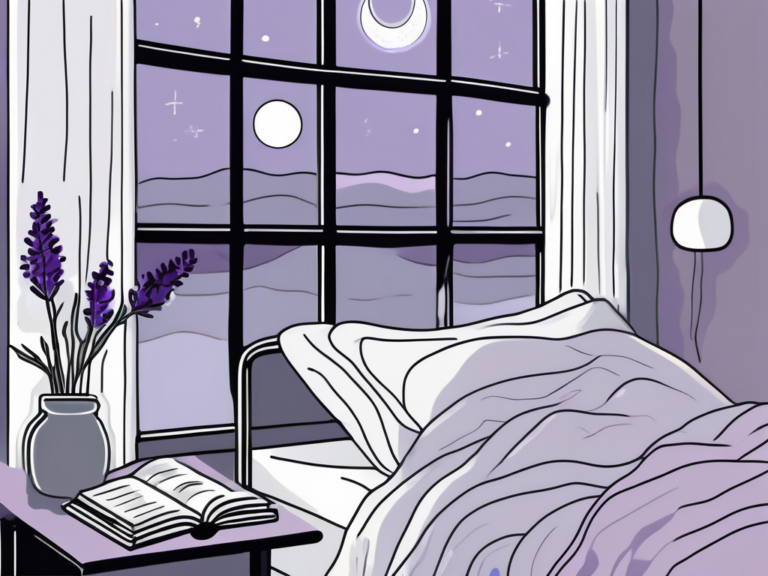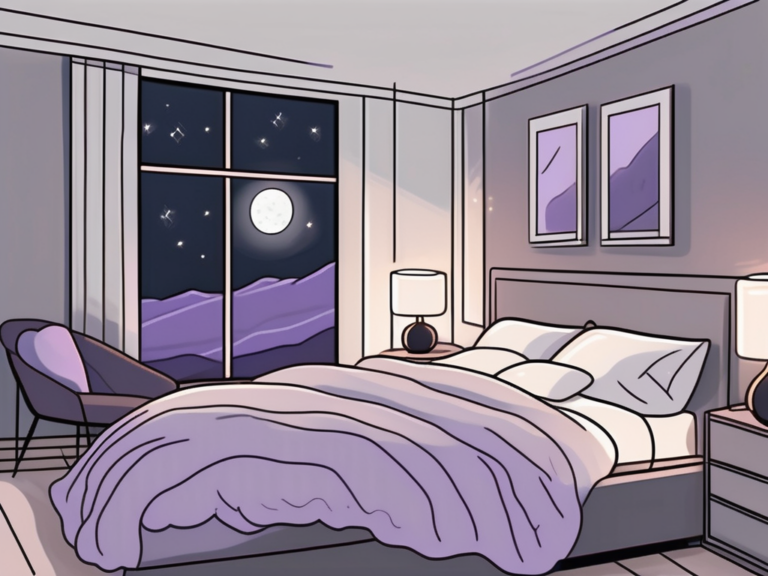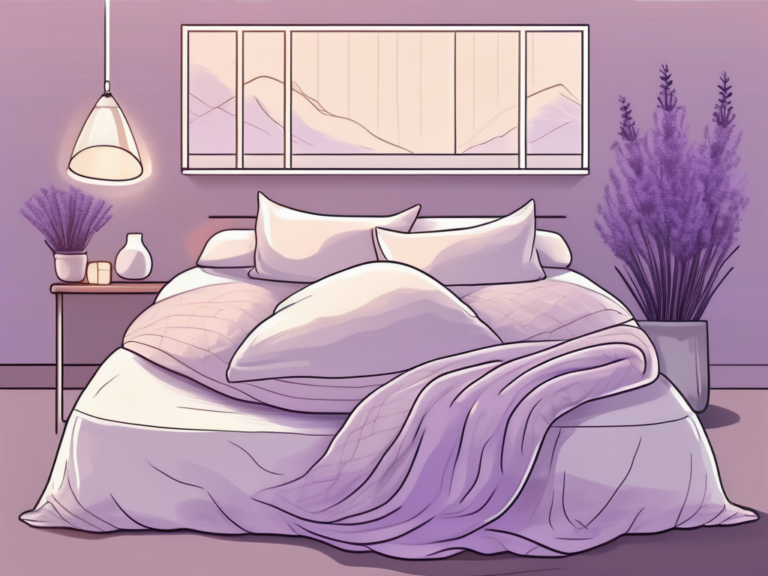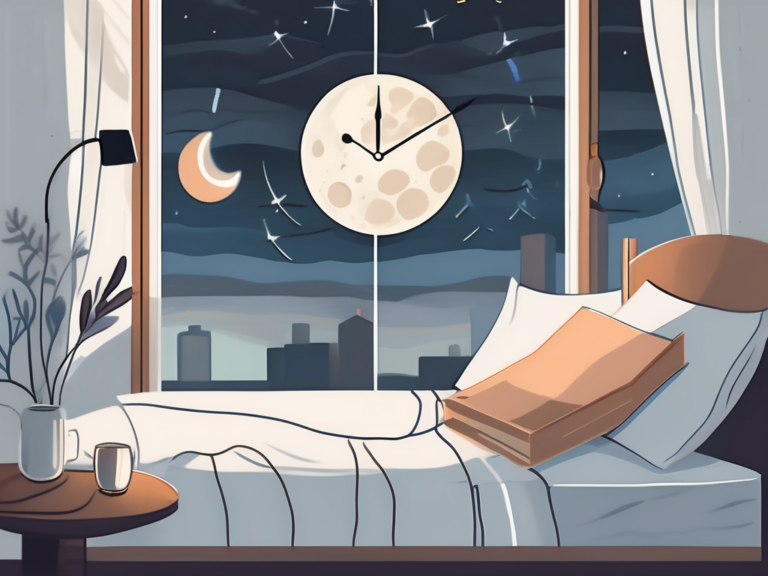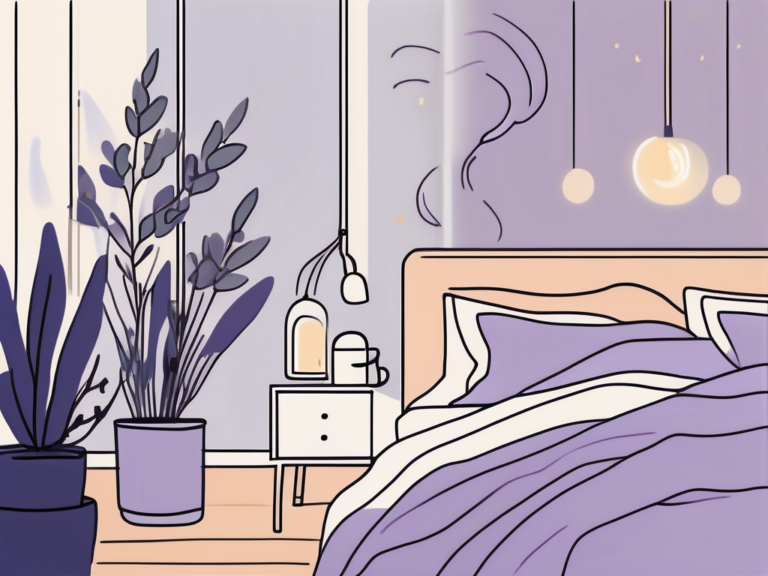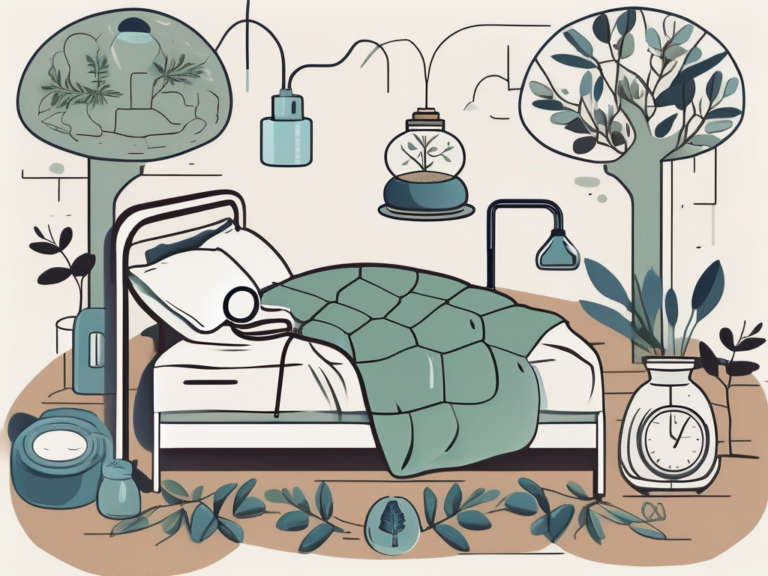Tips on How to Sleep Better at Night
Sleep is a crucial aspect of our lives, affecting our overall well-being and quality of life. However, many people struggle with getting a good night’s sleep. In this article, we will explore various tips and strategies to help you improve your sleep and wake up feeling refreshed and energized.
Understanding the Importance of Good Sleep
Before diving into the tips, let’s take a moment to understand why sleep is so essential. Sleep plays a vital role in maintaining our physical and mental health. During sleep, our bodies repair and regenerate tissues, while our brains consolidate memories and process information. Inadequate sleep can lead to a range of health issues, such as weakened immune function, cognitive impairment, and mood disorders.
The Science Behind Sleep
To truly appreciate the significance of sleep, let’s delve into the science behind it. Our sleep-wake cycle is regulated by a complex interaction between our biological clock and various hormones, such as melatonin. The circadian rhythm, also known as the body’s internal clock, helps regulate our sleep patterns. Understanding these physiological processes can help us optimize our sleep quality.
When we fall asleep, our brain goes through different stages of sleep. These stages include non-rapid eye movement (NREM) sleep and rapid eye movement (REM) sleep. NREM sleep is further divided into four stages, each with its own characteristics. During NREM sleep, our body repairs and regenerates, promoting physical recovery. REM sleep, on the other hand, is when our brain is highly active, and dreaming occurs. This stage is crucial for memory consolidation and emotional processing.
Health Benefits of Quality Sleep
When we prioritize good sleep, we reap numerous health benefits. Quality sleep not only enhances our immune system but also improves cognitive function, concentration, and memory. Furthermore, it contributes to better emotional well-being, reducing the risk of conditions like anxiety and depression. Adequate sleep also helps regulate appetite and maintain a healthy weight.
Additionally, getting enough sleep can have a positive impact on our cardiovascular health. Studies have shown that insufficient sleep is associated with an increased risk of developing conditions such as high blood pressure, heart disease, and stroke. On the other hand, consistently getting enough quality sleep can help lower these risks and promote a healthier heart.
Identifying Sleep Problems
It’s essential to recognize when you’re experiencing sleep difficulties so that you can address them effectively. Let’s explore some common sleep problems and signs that indicate you may not be getting enough sleep.
Common Sleep Disorders
Sleep disorders can significantly impact the quality and duration of our sleep. Conditions like insomnia, sleep apnea, restless leg syndrome, and narcolepsy require professional assistance for proper diagnosis and treatment. If you suspect you have a sleep disorder, it’s crucial to consult a medical professional to receive appropriate guidance.
Insomnia, one of the most prevalent sleep disorders, is characterized by difficulty falling asleep, staying asleep, or both. It can be caused by various factors, including stress, anxiety, depression, or certain medications. Sleep apnea, on the other hand, is a condition where breathing repeatedly stops and starts during sleep. This interruption in breathing can lead to fragmented sleep and excessive daytime sleepiness.
Restless leg syndrome is a neurological disorder that causes an irresistible urge to move the legs, often accompanied by uncomfortable sensations. This condition can make it challenging to fall asleep and stay asleep throughout the night. Narcolepsy, a chronic neurological disorder, causes excessive daytime sleepiness and sudden attacks of sleep, even during inappropriate times, such as while working or driving.
Signs You’re Not Getting Enough Sleep
Even if you don’t have a diagnosed sleep disorder, there are clear signs that suggest you’re not getting adequate sleep. Feeling consistently tired during the day, having trouble concentrating, experiencing mood swings, and frequently relying on caffeine or energy drinks are possible indicators of sleep deprivation.
When you consistently lack sufficient sleep, it can affect your cognitive abilities, making it difficult to focus, remember information, and make decisions. Your mood can also be greatly impacted, leading to irritability, increased stress levels, and a higher likelihood of experiencing anxiety or depression symptoms.
Moreover, relying on caffeine or energy drinks to stay awake during the day can create a vicious cycle. While they may provide a temporary boost, they can disrupt your natural sleep-wake cycle, making it even harder to fall asleep at night. This can perpetuate the cycle of sleep deprivation and further exacerbate the negative effects on your overall well-being.
Creating a Sleep-Inducing Environment
Your sleep environment plays a crucial role in promoting a restful night’s sleep. Let’s explore how you can optimize your bedroom setup and manage noise and light to create a sleep-inducing atmosphere.
The Role of Your Bedroom Setup
Your bedroom should be a sanctuary solely dedicated to sleep. It’s important to pay attention to the finer details that can make a significant difference in the quality of your sleep. Start by ensuring your mattress and pillows provide adequate support and comfort. A mattress that is too firm or too soft can lead to discomfort and restless nights. Finding the perfect balance is key to a good night’s sleep.
Keep the room cool, well-ventilated, and free of clutter. A clutter-free environment promotes a sense of calm and relaxation, allowing your mind to unwind. Invest in blackout curtains or an eye mask to block out external light and create a dark, relaxing environment. The absence of light signals to your brain that it’s time to sleep, helping you fall asleep faster and stay asleep longer.
Additionally, use calming colors in your bedroom decor. Soft, muted tones like blues, greens, and pastels can create a soothing ambiance, promoting a sense of tranquility. Remove any electronics that may distract you from sleep, such as televisions, laptops, or smartphones. These devices emit blue light, which can disrupt your natural sleep-wake cycle and make it harder to fall asleep.
The Impact of Noise and Light
Noise and light pollution can disrupt your sleep, even if you’re not consciously aware of it. Invest in earplugs or a white noise machine to drown out external noises that may disturb your slumber. The gentle hum of white noise can create a consistent and soothing background sound, masking any sudden noises that may startle you awake.
If streetlights or other sources of light are a concern, consider using blackout curtains or wearing a sleep mask. These simple solutions can effectively block out unwanted light, creating a serene and peaceful sleep environment. By eliminating light disturbances, you can enhance the quality of your sleep and wake up feeling refreshed.
Additionally, it’s important to limit your exposure to electronic screens before bedtime. The blue light emitted by these devices can interfere with the production of melatonin, a hormone that regulates sleep. When exposed to blue light, your body may struggle to wind down and prepare for sleep. Consider establishing a screen-free bedtime routine, allowing your mind and body to relax before drifting off to sleep.
By optimizing your bedroom setup and managing noise and light, you can create a sleep-inducing atmosphere that promotes deep and restorative sleep. Remember, a peaceful sleep environment is the foundation for a rejuvenated and energized day ahead.
The Influence of Diet on Sleep
The foods and drinks we consume can have a significant impact on our sleep quality. It’s not just about how much we eat, but also what we eat that can affect our ability to get a good night’s rest. Let’s explore some dietary tips to promote better sleep.
When it comes to foods that promote sleep, there are a few key players. Incorporating these into your diet can help regulate your sleep cycle and promote relaxation. One such food is kiwi. Not only is it delicious, but it also contains serotonin, a hormone that helps regulate sleep. Nuts, especially almonds and walnuts, are another great option. They are rich in magnesium, which has been shown to improve sleep quality. Fatty fish, like salmon and tuna, are not only a good source of omega-3 fatty acids but also contain vitamin D, which has been linked to better sleep. Tart cherries, whether eaten fresh or in juice form, are a natural source of melatonin, a hormone that helps regulate sleep-wake cycles. Finally, herbal teas, such as chamomile or lavender, can have a calming effect on the body, making it easier to fall asleep.
While there are foods that can promote sleep, there are also drinks that should be avoided close to bedtime. Caffeinated drinks like coffee and energy drinks can interfere with your ability to fall asleep. The stimulating effects of caffeine can last for hours, making it difficult to wind down and relax. Similarly, consuming alcohol shortly before bed can disrupt the quality of your sleep. While it may initially make you feel drowsy, it can cause multiple awakenings during the night, leading to a less restful sleep.
It’s important to note that everyone’s body is different, and what works for one person may not work for another. If you’re struggling with sleep issues, it may be worth experimenting with your diet to see if certain foods or drinks are affecting your sleep quality. Keeping a sleep diary can help you track your food and drink intake and identify any patterns or correlations with your sleep patterns. Remember, a good night’s sleep starts with a healthy and balanced diet!
The Role of Exercise in Sleep Quality
Regular physical activity not only benefits our overall health but also improves our sleep quality. Let’s explore how exercise can positively influence your sleep.
Exercise has been shown to have a direct impact on the quality and duration of our sleep. When we engage in physical activity, our body temperature rises, and our heart rate increases. This increase in body temperature and heart rate triggers a cascade of events in our body that ultimately helps us fall asleep faster and enjoy a deeper, more restorative sleep.
Best Time to Exercise for Good Sleep
Aim to complete your exercise routine at least a few hours before bedtime. Engaging in vigorous physical activity too close to bedtime may increase alertness and make it difficult to wind down. Allow your body enough time to cool down and relax before heading to bed.
It’s important to note that everyone’s body is different, and what works for one person may not work for another. Some individuals find that exercising in the morning or early afternoon energizes them and helps them sleep better at night, while others prefer to exercise in the evening to release any built-up tension from the day. Experiment with different exercise times to find what works best for your body and sleep patterns.
Types of Exercise for Better Sleep
While any form of physical activity is beneficial, certain exercises can have a more significant impact on sleep quality. Activities like yoga, tai chi, and gentle stretching can help relax your mind and body and promote a restful night’s sleep. These exercises focus on deep breathing, stretching, and gentle movements that help release tension and calm the mind.
In addition to these calming exercises, incorporating cardiovascular activities like running, swimming, or cycling into your routine can also improve sleep quality. These activities increase your heart rate and release endorphins, which are known to improve mood and reduce stress. By reducing stress levels, you can create a more conducive environment for a good night’s sleep.
Remember, the key is to find activities that you enjoy and that align with your fitness level and preferences. By incorporating exercise into your daily routine, you can not only improve your overall health but also enhance the quality of your sleep. So, lace up those sneakers, roll out your yoga mat, or jump into the pool – your body and mind will thank you for it!
Relaxation Techniques for Better Sleep
Incorporating relaxation techniques into your bedtime routine can help prepare your mind and body for sleep. Let’s explore two effective methods: mindfulness and breathing exercises.
Sleep is an essential part of our daily lives, yet many of us struggle to achieve a restful night’s sleep. The demands of work, family, and other responsibilities can often leave us feeling stressed and anxious, making it difficult to unwind and relax. However, by incorporating relaxation techniques into our bedtime routine, we can create a peaceful environment that promotes deep and rejuvenating sleep.
Mindfulness and Meditation
Mindfulness and meditation involve focusing your attention on the present moment, promoting relaxation and reducing stress. Including mindfulness exercises or guided meditation in your nightly routine can help calm your mind and create a conducive environment for sleep.
Imagine yourself lying in bed, surrounded by a serene atmosphere. You close your eyes and begin to take slow, deep breaths, allowing your body to relax with each exhale. As you focus on your breath, you let go of any thoughts or worries that may be lingering in your mind. With each inhale, you imagine breathing in tranquility and peace, and with each exhale, you release any tension or stress. This practice of mindfulness and meditation allows you to let go of the day’s events and enter a state of deep relaxation, preparing you for a restful night’s sleep.
Breathing Exercises for Sleep
Deep breathing exercises can help activate your body’s relaxation response, preparing you for a restful sleep. One simple technique is to inhale deeply through your nose, hold for a few seconds, and then exhale slowly through your mouth. Repeat this process several times, paying attention to your breath and letting go of any tension.
As you lie in bed, you begin to focus on your breath, inhaling deeply and feeling the cool air entering your nostrils. You hold your breath for a moment, savoring the stillness, and then exhale slowly, releasing any tightness or stress that may be lingering in your body. With each breath, you feel a sense of calmness washing over you, as if all your worries are being carried away with each exhale. This simple yet powerful breathing exercise allows you to connect with your body and create a sense of inner peace, paving the way for a restful and rejuvenating sleep.
The Impact of Technology on Sleep
In today’s digital age, the excessive use of technology can interfere with our sleep patterns. Let’s understand how technology affects sleep and explore some tools and apps that can help improve our sleep habits.
The Effect of Blue Light on Sleep
Exposure to blue light emitted by electronic devices can suppress the production of melatonin, a hormone that regulates sleep-wake cycles. To minimize the impact, limit your screen time before bedtime. Consider using blue-light-blocking glasses or enabling the night mode feature on your devices to reduce the exposure.
Apps and Tools to Improve Sleep
Technology can also assist in improving sleep quality. Numerous smartphone apps offer guided meditations, ambient sounds, and sleep tracking features. Additionally, smart home devices can create a sleep-friendly environment by controlling lighting, temperature, and sound. Use these tools wisely to support your sleep routines.
When to Seek Professional Help
If you have tried various strategies and continue to struggle with sleep difficulties, it may be necessary to seek professional help. Let’s explore the potential benefits of sleep therapy and the use of medication for sleep disorders.
Sleep Therapy and Its Benefits
Sleep therapy involves working with a healthcare professional who specializes in sleep disorders. This form of treatment can help identify the underlying causes of your sleep difficulties and develop personalized strategies to improve your sleep. Therapies such as Cognitive Behavioral Therapy for Insomnia (CBT-I) can be highly effective in addressing sleep-related issues.
Medication for Sleep Disorders
In some cases, sleep disorders may require medication for effective management. Prescription sleep aids can help regulate sleep patterns and alleviate symptoms of certain sleep disorders. However, it’s crucial to work closely with a healthcare professional to determine the most suitable medication for your specific needs and to monitor any potential side effects.
In conclusion, prioritizing quality sleep is essential for our overall well-being. By understanding the science behind sleep, identifying sleep problems, optimizing our sleep environment, managing our diet and exercise routines, incorporating relaxation techniques, and being mindful of the impact of technology, we can improve our sleep quality. Remember, seeking professional help when needed is crucial, as it can provide valuable guidance and treatments to address sleep disorders. Embrace these tips and strategies, and enjoy the benefits of a restful and rejuvenating night’s sleep.

